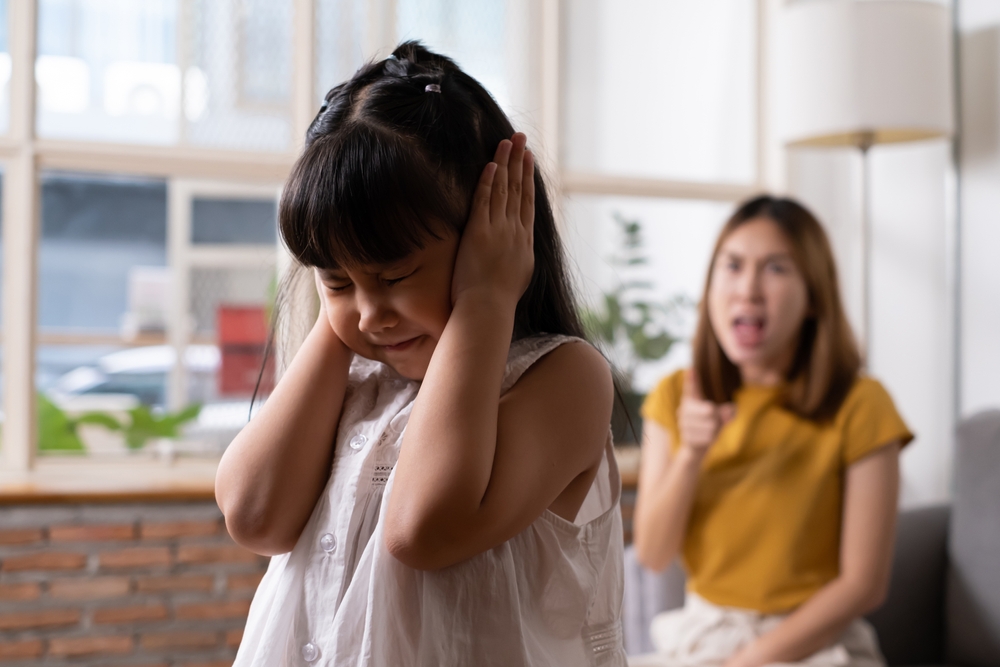Hostile parenting, characterised by physical discipline and over-controlling behaviour, was found to nearly double the risk of children developing mental health symptoms.
This was found according to a recent study published in the medical journal Epidemiology and Psychiatric Sciences, which unveils a connection between certain parenting styles and children’s mental health outcomes.
Analysis of Parenting Styles and Child Mental Health
The study followed over 7,500 children in Ireland, tracking them from the age of 9 months up until they were 9 years old.
Researchers discovered that children exposed to hostile parenting at age 3 were 1.5 times more likely to have high-risk mental health symptoms. Children in the study were also 1.6 times more likely to have mild-risk mental health symptoms by age 9.
Impact of Hostile Parenting
According to Dr. Ioannis Katsantonis, the lead author of the study and a doctoral researcher at the University of Cambridge, these findings suggest that avoiding hostile parenting in early childhood could help prevent children from developing increased mental health symptoms.
Parents in the high-risk category exhibited greater stress and a higher likelihood of ongoing physical and mental health problems. This indicates a need for additional support and resources to enhance their parenting skills.
The Role of Parental Support
The lead co-author of the study and an associate professor at the University College Dublin, Dr. Jennifer Symonds, emphasised the need for parental support to foster mental well-being in children.
Dr. Symonds asserts that providing proper support to parents is crucial for promoting positive mental health outcomes in their children. Echoing this sentiment, Dr. Anju Hurria, a child psychiatrist at the University of California, Irvine, who was not involved in the study, states that communities should make evidence-based parent management programs readily accessible for parents to enhance their parenting skills.
Consistent Parenting and Mental Health
The study discovered that consistent parenting, involving the steady application of expectations and rules, provided mild protection for children at lower risk of developing mental health symptoms.
Consistency encompasses not just the establishment of rules, but also parents maintaining expectations about their children’s behaviour and the consequences that follow misbehavior. Katsantonis explained that consistent parenting might help because it provides children with a sense of predictability and security, which can act as a buffer against worsening mental health.
Warm Parenting Styles and Mental Health
Interestingly, the researchers did not find any change in risk for mental health symptoms with “warm” parenting styles, which previous research has suggested is protective.
Katsantonis clarified that parenting is not the only factor shaping mental health, and the impacts of low income, living in a lone-parent household, being a female child, facing health issues, or having parents with health problems could all absorb any positive benefits of warm parenting in terms of mental health.
Additional Factors Affecting Mental Health
Dr. Hurria emphasises that, although the study highlights the impact of parenting styles on children’s mental health, parenting techniques alone do not solely cause mental health symptoms. Factors such as genetics also play a significant role in mental health outcomes. Nevertheless, the study underscores the importance of addressing parenting styles as one area of intervention for improving children’s mental health.
Parental support and evidence-based parent management programs are essential for improving parenting skills and promoting mental well-being in children. Parenting, though not the sole influence on mental health, is vital for improving children’s mental health outcomes.












